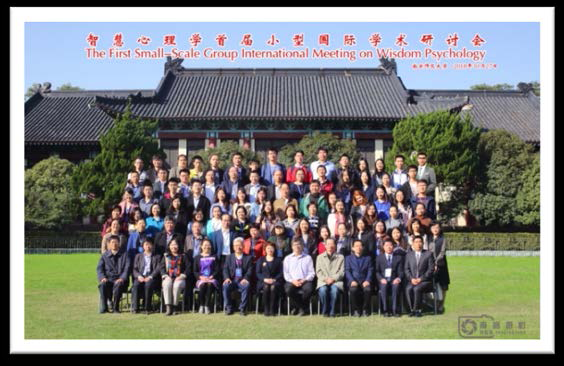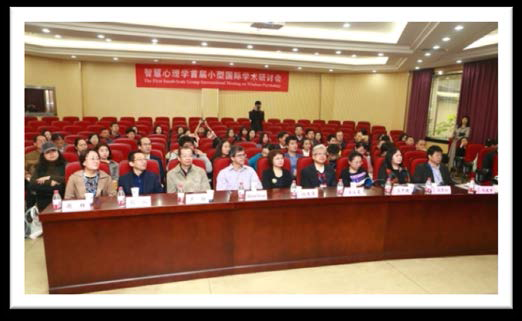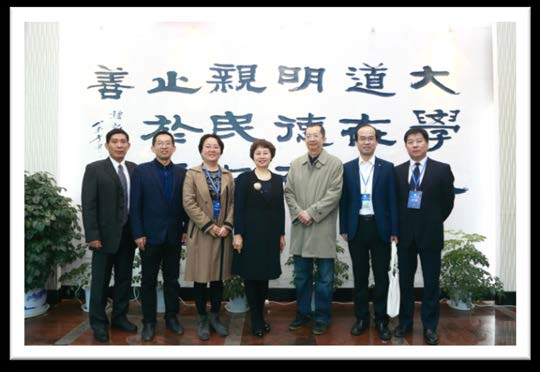AASP SGM “Wisdom Psychology”
The First Small-Scale Group International Meeting on Wisdom Psychology, of which the theme is Diversity in Wisdom: Insights from Psychology, was successfully held in international lecture hall, the first floor of Tin Ka Ping south building in old campus of Nanjing normal university on October 27-28, 2018. The conference was hosted and sponsored by the Asian Association of Society Psychology, co-hosted by the School of Psychology of Nanjing Normal University and the Institute of Moral Education of Nanjing Normal University. It was also co-organized by Jiangxi Education Publishing House and Shanghai Education Publishing House.

The small group meeting generated a lot of interest and finally the academic committee accepted 28 abstracts after review. The abstracts covered various fields and perspectives of wisdom psychology including current trends. The teachers and student representatives from Nanjing Normal University along with 58 out-of-school delegates attended the conference that included 8 international friends from Canada, Japan, Indonesia, Malaysia and Poland and the remaining came from domestic universities, Jiangxi Education Publishing House and Shanghai Education Publishing House.


These two days have been short but fulfilling. Six invited presentations and three special seminars were held. Professor Michel Ferrari introduced a cross-cultural wisdom study using an integrated design approach, which revealed the similarities and differences in adjective classification, the nomination of the wiser, and the result of wisdom-related scale among subjects from different countries. Dr. Grossmann considered wisdom as a metacognitive framework for wise reasoning and introduced his research findings on context-dependent perspectives. From a comparative perspective, Professor Su Yanjie discussed the definition and evaluation of human and animal wisdom, as well as some related research. Based on the principle of brain cognitive of Chinese wisdom, Professor Luo Jin introduced the insight experiments for brain function vividly. Based on practical problems, Professor Wang Lixia paid attention to students’ mental health, and put forward wise outlook on life that integrates knowledge with practice, emotion with intelligence, and body with mind. From the perspective of culture, Professor Wang Fengyan introduced the research process of wisdom psychology deliberating on the latest progress in wisdom theory regarding integration of virtue and smartness. He also put forward 15 constructive suggestions on the future direction of wisdom psychology. Overall the presentations were rich in content and covered diverse aspects of wisdom psychology. It was an academically enriching experience with lots of exchange of ideas between delegates.
